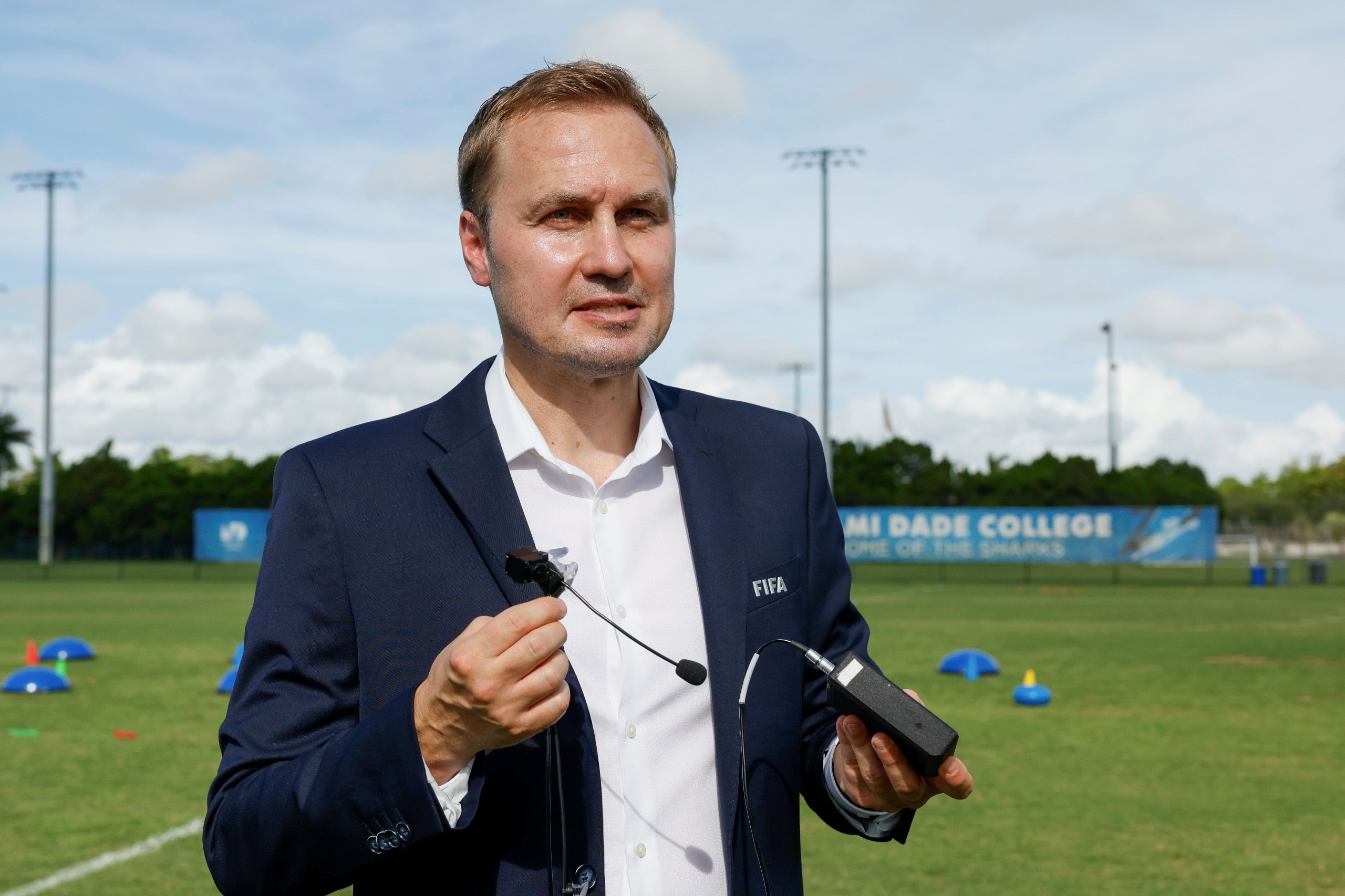The FIFA Club World Cup 2025 kicked off here in the United States beginning June 14 and runs through July 13. Our own FOX Sports Radio host, reporter and producer Kelsey Nicole Nelson sat down with FIFA’s Director of Innovation Johannes Holzmüller to break down the debut of the technological advances FIFA is using to take the Club World and World Cup to new heights.
Holzmüller, who’s been with FIFA since 2008 and typically works out of Switzerland, was on the ground in Miami, Florida to lead the technological transformation of international soccer. In his role as Director of Innovation, he oversees the entire innovation pipeline — from identifying football stakeholders’ needs to developing and implementing new game-enhancing technologies.
Among the biggest innovations for FIFA Club World Cup 2025 is the use of referee body cameras, a first for the tournament and potential next step of first-person visuals in competitive sports. Holzmüller shared that these cameras will allow fans to “see the game through the eyes of an official,” offering a new level of engagement. Notably, the footage will be shared with the tournament’s exclusive global broadcaster DAZN, and even stadium fans will be able to view the referees’ perspectives live on the jumbotrons.
“This will be amazing to see live,” said Holzmüller. “All the spectators have the same information as the referee. It will really be awesome.”
The conversation shifted to another groundbreaking area — artificial intelligence and real-time player tracking. This year, each stadium will house 16 optimal-tracking cameras, capturing 30 data points per player, 50 times per second.
Additionally, game balls are now equipped with IMU sensors, providing precise data on ball movement.
All this feeds into FIFA’s recent partnership with Hawker Innovations, enabling the automatic generation of key match statistics — like passes completed and ball possession—through AI algorithms. “Everything which was collected manually can now be done automatically,” Holzmüller noted.
The FIFA Club World Cup 2025 is serving as a real-time test lab for these tools, all in preparation for even more expansive implementation at the FIFA World Cup 2026.
Coordinating the tournament across 12 stadiums in the U.S. is no small feat. Holzmüller explained that his team has stationed one innovation expert in each stadium, all feeding into a central operations hub at MetLife Stadium in New Jersey.
“It looks a little bit like a Formula One box,” he said. “People sitting in front of monitors, checking and monitoring all the data. We are watching everything that could impact the game.”
Holzmüller made it clear during a conversation on the use of advanced technology and AI that. the goal of innovation isn’t to replace humans but to support them. He cited the infamous 2010 World Cup incident involving Frank Lampard’s disallowed goal as the catalyst that sparked FIFA’s journey into tech-enhanced officiating.
“We’re not saying we want to replace anyone. We just want to support the referees,” he said.
That philosophy is evident in the rollout of semi-automated offside technology, which uses real-time player and ball data to send alerts to assistant referees within milliseconds.
Compared to other countries, Holzmüller said the U.S. stands out for its already tech-rich stadiums. This presented both advantages and challenges, like finding space to install FIFA’s own cameras among the existing infrastructure. But he welcomed the challenge, calling it an “exciting opportunity” to integrate FIFA’s systems with top-tier American technology.
Finally, Holzmüller emphasized that the innovations deployed in theFIFA Club World Cup 2025 will serve as the blueprint for the FIFA World Cup 2026 and even the 2027 FIFA Women’s World Cup.
“All the learnings and feedback, of course, we then bring to the next tournaments where we try to improve,” he said.
From AI-generated data to referee POV cameras and centralized tech hubs, FIFA is embracing a bold new era. And if Holzmüller has his way, the 2025 Club World Cup won’t just crown the world’s best club — it’ll define the future of football itself.



